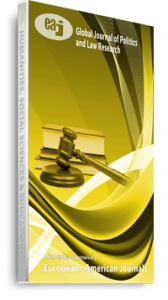Indonesian adjudication find a difficulty in establishing fair law certainty because it is hard for the judge to interpret the transcendental ideology concerning with law certainty and justice. This ideology has been within First Principle of Pancasila, “The Belief on One Supreme God” and also principle of adjudication stating that “adjudication shall favor of justice based on One Supreme God”. Islamic Law offers the transcendental ideology as manifestation of the physicality and mentality of legality principles. These principles are: “law does not deteriorate at all; there is a presumption of innocence; the punishment with doubt is invalid; and God may not punish human without notification or warning through Prophets”. The transcendental ideology for just adjudication has been justified by the Act of Judicial Power which requires the judge to explore, to follow and to understand the justice values advocated and developed within the community (spirituality) and also the unwritten laws (religion). The universality of the transcendental ideology for just adjudication in Indonesia, according to Islamic, is deriving from the attributes of God (al-hakam, al-adel, al-hakim) and also from the signification of universality of al’adl, al-qist and wasat.
Keywords: Adjudication, Ideology, Justice, Law Certainty, Transcendental

